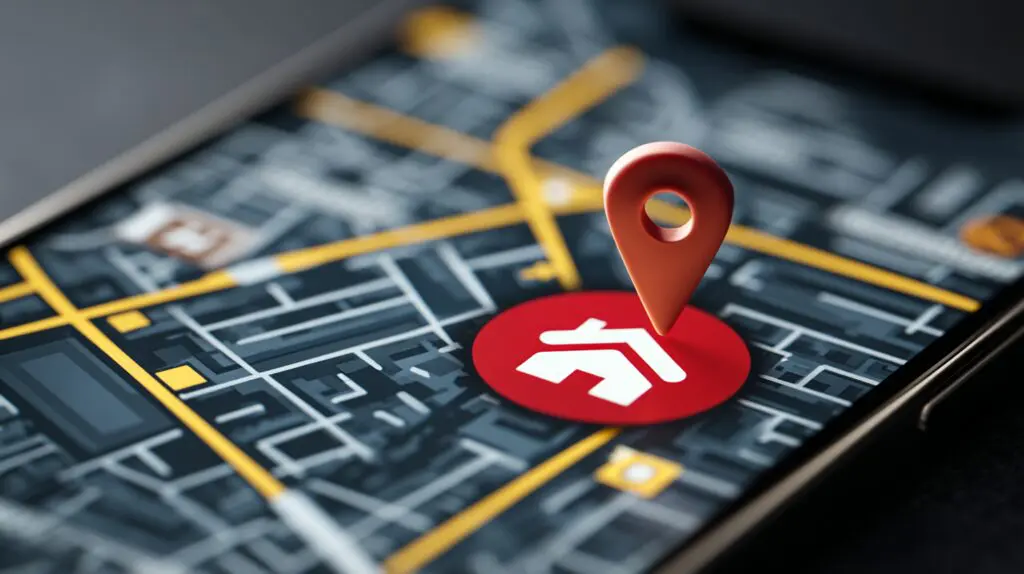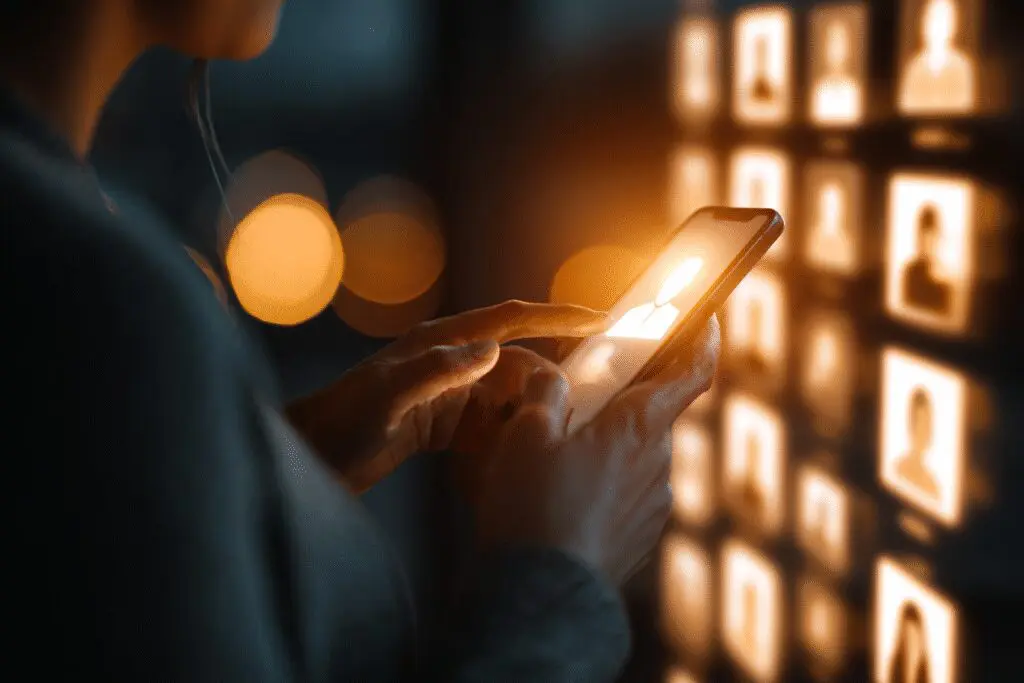We need to talk about location sharing on apps. You know, those features like Find My Friends, Snapchat’s Snap Map, or even just tagged locations on Instagram posts. Super handy sometimes, right? Letting your friend know you’re running late, checking if your partner got home okay, coordinating meetups… it definitely has its uses.
But – and it’s a big ‘but’ – there’s a flip side. A really serious one, especially for women. That constant broadcasting of where we are, even if supposedly just to ‘friends’, opens up a whole world of safety risks that we just can’t ignore. It’s that little flicker of unease you might feel when an app asks for always-on location access. That feeling is valid.
I’ve spent time thinking about this, reading accounts online (sadly, there are many), and just connecting the dots based on how these features work. It’s not about being paranoid; it’s about being realistic. So, let’s get into 25 Big Location Sharing Safety Concerns for Women on Apps. No tech jargon, just the real-world worries we need to keep in mind.
The Stalking & Harassment Nightmare (Concerns 1-7)
This is often the first thing that jumps to mind, and for good reason. Location data is a stalker’s dream.
- Real-Time Stalking: Someone using your live location on an app (like Snap Maps or Find My) to literally follow you or know exactly where you are right now. Super creepy, super dangerous.
- Mapping Your Whole Life: Apps revealing your regular spots – home, work, gym, friends’ houses, the coffee shop you love – creating a predictable map for anyone watching.
- Predicting Your Routines: Even if not watching live, someone can check your location history or patterns to figure out your schedule. When you leave for work, when you get back, where you go on Tuesdays… it makes you predictable.
- Finding You When You’re Alone: Knowing your routine or seeing your live location might allow someone to figure out when and where you’re likely to be alone and vulnerable.
- Online Threats Turning Physical: An online harasser using your shared location (maybe grabbed from a tagged photo or a brief ‘Find My’ share) to show up where you are offline. It escalates things terrifyingly fast.
- Unwanted Approaches: Someone you vaguely know, or even a stranger who got access somehow, using your location to “bump into you” unexpectedly. It’s invasive and intimidating.
- Geotagging Clues: Even seemingly innocent photos posted online can have hidden location data (geotags) revealing exactly where they were taken, unless you disable it.
Physical Safety & Real-World Threats (Concerns 8-13)
Beyond stalking, there are other direct physical safety risks tied to location sharing.
- Increased Risk of Assault: If someone with bad intentions knows where you are and when you might be vulnerable (e.g., walking home late), it drastically increases their opportunity.
- Home Invasion or Burglary: Sharing your location when you’re clearly out (like checking in at a concert or sharing vacation pics live) tells potential thieves your home is empty. It’s like an open invitation.
- Targeting Based on Location: Someone could target you specifically because you frequent a certain place or live in a particular area, information gleaned from location sharing.
- Risks on Dates: Sharing your live location with someone you met online before you really know or trust them is incredibly risky. They could misuse that info immediately or later. A huge red flag if someone pressures you for this early on.
- Abduction Risk: In worst-case scenarios, detailed knowledge of your location and routines could potentially aid someone planning an abduction. It sounds extreme, but it’s a possibility we have to acknowledge.
- Compromised Safety Plans: If you have a safety plan to avoid someone (like taking different routes home), location sharing can completely undermine it if the wrong person has access.
Privacy Breaches & Data Exposure (Concerns 14-18)
Sometimes the danger isn’t one specific person, but wider data exposure.
- App Data Breaches: The app itself could get hacked, leaking users’ location data (maybe even historical data) to criminals or the public internet. You trust the app, but their security might fail.
- Doxing and Malicious Sharing: Someone taking screenshots of your location or location history and sharing it publicly online to harass, shame, or endanger you (doxing).
- Third-Party Data Selling: Some apps collect and sell location data (supposedly anonymized, but “anonymization” isn’t foolproof) to data brokers or advertisers. You become the product.
- Unclear App Permissions: Apps often bundle location permissions. You might grant access for one feature (like weather) but not realize it’s also being used for background tracking or sharing. Reading those permissions details matters!
- Legal Snooping: In legal disputes (like custody battles or lawsuits), location data subpoenaed from apps could potentially be used against you.
The “Friendly Fire” Problem & Accidental Sharing (Concerns 19-22)
It’s not always malicious strangers; sometimes risks come from people you know or simple mistakes.
- Oversharing by Friends: A well-meaning friend might screenshot your shared location to show someone else (“Look where Sarah is!”) without realizing the risk or who might see it.
- Trusting the Wrong People: Giving location access to acquaintances or friends-of-friends who turn out to be untrustworthy or have ulterior motives. Access, once given, is often forgotten.
- Accidentally Sharing Precise Location: Choosing “Share Precise Location” when maybe a general area would have been safer, or forgetting to turn off live sharing after you meant to share it briefly. Easy mistakes to make.
- Forgetting Who Has Access: Over time, you might grant location access to many people across different apps. It’s hard to keep track and even harder to regularly audit and revoke access.

Relationship Control & Pressure Tactics (Concerns 23-25)
Location sharing can be weaponized in relationships, becoming a tool for control.
- Coercive Control by Partners: An abusive or controlling partner demanding constant location access to monitor your movements, question where you are, and limit your freedom. This is a serious form of abuse.
- Pressure to Share: Feeling forced or guilt-tripped into sharing your location with partners, family, or even friends (“If you have nothing to hide, why not share?”). Your privacy boundaries should be respected.
- Normalizing Surveillance: Getting so used to sharing and being tracked that it starts to feel normal, lowering our guard against potential risks or demands for even more monitoring.
It’s About Awareness, Not Just Panic
Okay, reading through all that is intense. I get it. It sounds pretty scary, and honestly, it is concerning. But the goal here isn’t to make you want to throw your phone in a river and live off-grid (unless that’s your jam!). Many people use these features daily without incident.
The real point is awareness and control. Knowing these 25 big location sharing safety concerns for women on apps helps you make informed decisions. It reminds you to:
- Check Your Settings: Regularly review which apps have location access and what kind (always, only while using, precise). Be ruthless about turning off anything unnecessary.
- Be Selective: Think very carefully about who you share your live or precise location with. Is it truly necessary? Do you trust them implicitly?
- Limit Sharing Time: If you need to share your location, set it to expire after an hour or when you arrive, rather than sharing indefinitely.
- Disable Geotagging: Check your phone and camera settings to stop automatically adding location data to photos you might share.
- Trust Your Gut: If someone pressures you to share your location, or if sharing makes you feel uneasy for any reason, listen to that feeling. It’s okay to say no.
Your safety is more important than someone else’s convenience or curiosity. These apps and features are tools; you get to decide how, when, and if you use them. Stay aware, stay critical, and prioritize your well-being.
Frequently Asked Questions
How can location sharing be weaponized in controlling or abusive relationships?
Partners or family members might demand constant access to monitor your movements, pressure you into sharing your location, or normalize surveillance, turning the feature into a tool for coercive control.
What are the risks of accidental or unwitting location sharing among friends or followers?
Accidental sharing can happen when you forget who has access, choose precise location options unnecessarily, or share with untrustworthy acquaintances, potentially exposing your whereabouts without your intention.
In what ways does location sharing lead to privacy breaches or data exposure?
Location sharing can result in data breaches if apps get hacked, lead to doxing or malicious online sharing, and entail third-party data selling, all of which compromise your privacy and personal security.
How can sharing my location online compromise my physical safety?
Sharing your location can increase risks such as assault, home invasion, targeted harassment, and even abduction by making your whereabouts and routines visible to potential threats.
What are the main dangers of real-time location sharing for women?
Real-time location sharing can enable stalking, harassment, and even physical threats by allowing others to see exactly where you are at any moment and predict your routines.




